Organic Peanut Butter: An In-Depth Exploration
Peanut butter, a ubiquitous presence in numerous pantries, yet have you ever paused to ponder the implications of your peanut butter selection on both your well-being and the environment? If you’re keen on adopting more health-conscious and eco-friendly choices, organic peanut butter might just be the ideal alternative. This article will delve into the realm of organic peanut butter, elucidating its advantages, varieties, and offering guidance on selecting the most suitable option for your needs.
Embark on a journey into the realm of organic peanut butter! Have you ever yearned to delve deeper into this delectable and nutritious delicacy? Your search ends here! Within this article, you’ll uncover a wealth of knowledge about organic peanut butter – encompassing its health-enhancing properties, its production process, and even a selection of scrumptious recipes
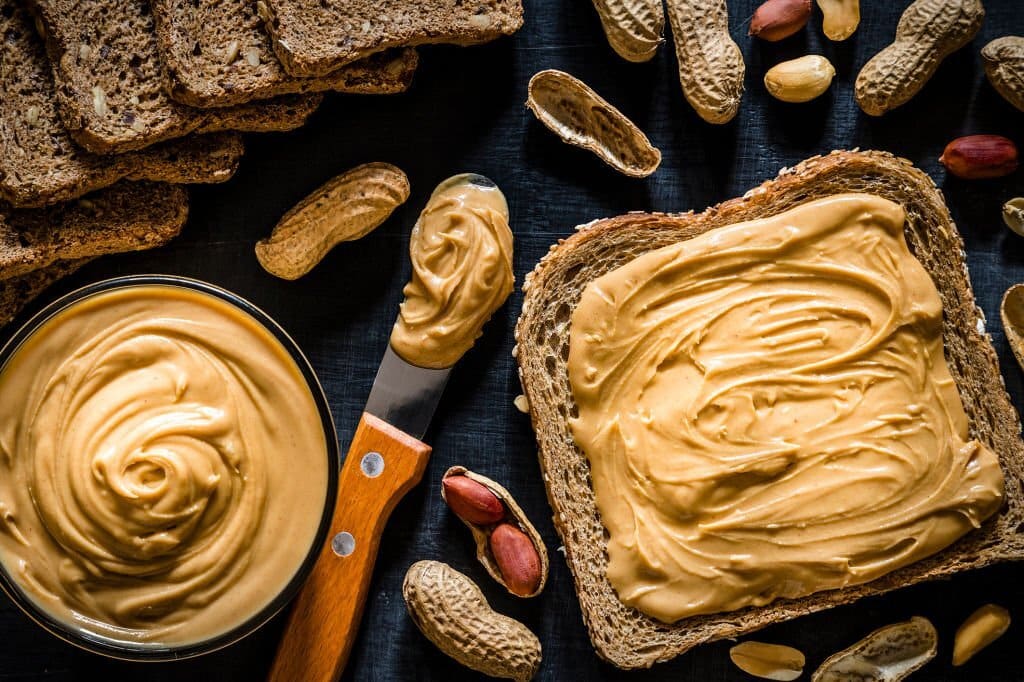
Whether you’re a peanut butter connoisseur or simply on a quest to adopt healthier dietary habits, this article caters to all. So, if you’re prepared to expand your knowledge on organic peanut butter, continue reading! Let’s embark on this nutty adventure!
What distinguishes organic peanut butter from regular peanut butter?
Organic peanut butter is crafted from peanuts (and occasionally salt) that have been cultivated devoid of synthetic pesticides, herbicides, and chemical fertilizers. Organic peanut butter must exclusively utilize organically grown peanuts, whereas regular peanut butter may incorporate peanuts that have been farmed using conventional methods. The employment of such traditional farming techniques can result in the introduction of undesirable chemicals, known as pesticides, which pose a threat to your health.
Organic peanut butters are also non-genetically modified (non-GMO), signifying that its constituents have not been manipulated in any laboratory environment. In contrast, non-organic or regular peanut butters may contain GMO ingredients, contingent on the manufacturer. Moreover, organic certification necessitates the implementation of appropriate environmental management practices and fosters biodiversity to maintain a balanced ecological equilibrium. taste.
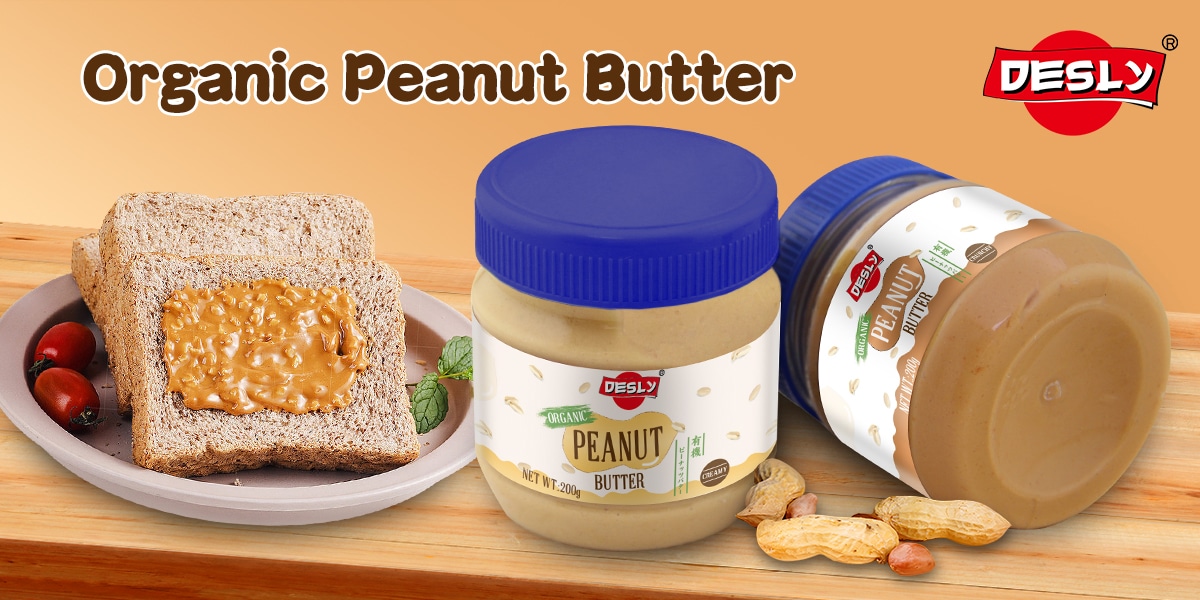
In terms of health advantages and nutritional data, organic peanut butter distinguishes itself from the regular variant. The organic oils employed in organic butters can supply monounsaturated fatty acids, which can bolster cardiovascular health, enhance insulin regulation, and potentially facilitate weight loss benefits due to their comparatively low caloric content when juxtaposed with other calorie-rich snacks such as confectionery or crisps.
Organic peanuts frequently contain a higher concentration of dietary fibre than their non-organic counterparts, attributable to soil health and the additional harvesting endeavours associated with organic farming practices. These practices tend to diminish levels of antinutrients – compounds that inhibit the absorption of essential minerals into your body, thereby reducing overall nutritional value – such as phytic acid, naturally present in legumes like peanuts and soybeans. Consequently, organic butters typically offer superior quality proteins once these compounds are mitigated through additional processing stages during production, resulting in a more nutritionally balanced product prior to consumer consumption.
Which is the superior peanut butter: organic or natural?
Peanut butter, a cherished pantry essential, is making appearances in a myriad of places—from toast to trail mix and smoothies. However, when it comes to the debate of organic versus natural peanut butter, which emerges as the healthier choice?
Organic peanut butter is crafted with organic peanuts cultivated without the use of synthetic fertilizers or pesticides. It also eschews artificial flavours, preservatives, and other ingredients potentially detrimental to your health. Furthermore, purchasing organic peanut butter may be more sustainable than conventional varieties as it endorses more environmentally friendly farming practices that contribute less environmental waste. The label of organic peanut butter should state “100 per cent organic peanuts” unless otherwise specified.
Conversely, natural peanut butters are produced with peanuts that may not have been cultivated using sustainable methods. Some natural peanut butters incorporate additional ingredients such as added sugar, palm oil, or preservatives, which can significantly augment the fat and sugar content of your snack or meal. Although the definition of “natural” can fluctuate from product to product, most natural brands will not contain added sugar beyond what is inherently present in the peanuts.
The ultimate choice between organic or natural hinges on your individual dietary requirements and preferences for taste and convenience. Regardless of the type of peanut butter you select, both variants are rich in protein and healthy fats and constitute a nutritious addition to your diet. Ensure to scrutinize labels meticulously if you wish to evade added sugar or if you’re seeking an organic option for environmental considerations.
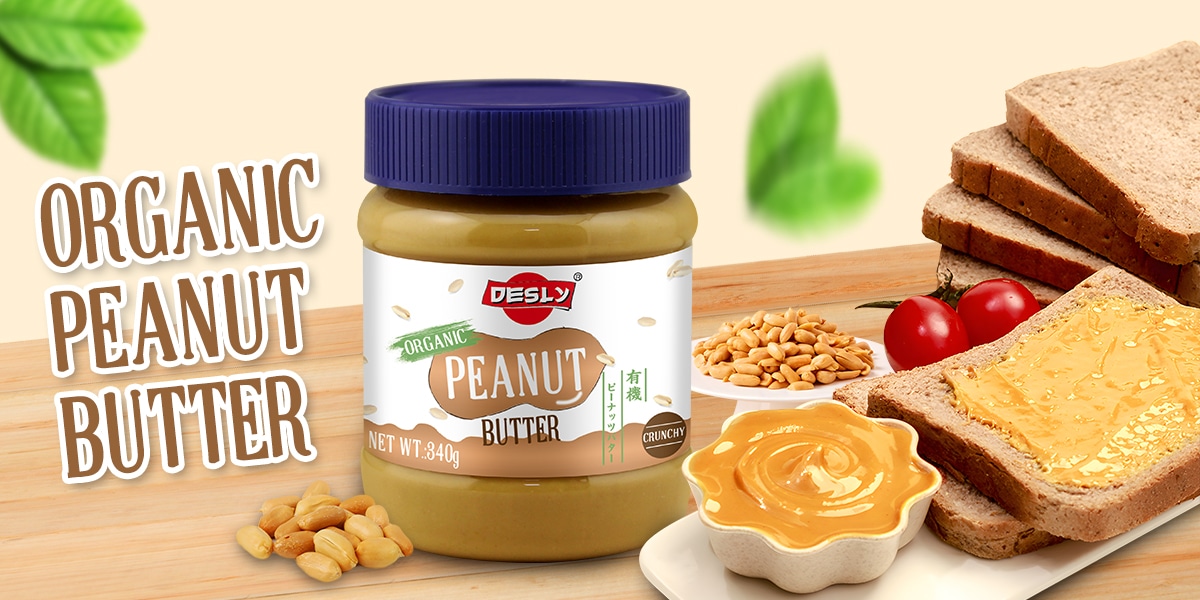
What are the benefits of organic peanut butter?
Organic peanut butter can proffer numerous health benefits in comparison to its non-organic counterparts. It has been discovered to contain an abundance of vitamins and minerals, including potassium, magnesium, zinc, phosphorus, and B vitamins. Research has also indicated that organic products may possess a higher concentration of bioactive compounds like polyphenols that are beneficial for the body.
In addition to supplying essential nutrients for optimal health, organic peanut butter can serve as an excellent source of protein and dietary fibre, which aid in prolonging satiety, thereby assisting in weight loss. Organic products also generally contain fewer calories than non-organic versions, which aids in reducing caloric intake in your diet.
THE ADVANTAGES OF ORGANIC PEANUT BUTTER
Moreover, organic peanut butter can supply essential fatty acids such as Omega 3s, which are indispensable for brain development, cardiovascular health, and mood regulation. By opting for an organic variant of your preferred spread over conventional ones, you will also be contributing to the support of sustainable farming practices, which are more beneficial for the environment as they employ fewer chemicals and pesticides on their crops.
What is the recommended daily intake of peanut butter?
Incorporating a moderate quantity of peanut butter can seamlessly fit into a wholesome diet. Generally, the suggested daily intake is approximately two tablespoons, delivering all the nutrients inherent in organic peanut butter with merely 200 calories and 16 grams of fat.
Peanut butter is laden with protein, healthy fats, and a variety of vitamins and minerals. It also boasts high levels of resveratrol, an antioxidant found in grapes and red wine, which may mitigate inflammation and prevent disease. Consuming organic peanut butter may also enhance your health by improving blood sugar and cholesterol levels, reducing your risk for heart disease, and diminishing your risk for certain types of cancer, such as colon cancer.
Although organic peanut butter offers various health benefits when consumed in moderation, it’s crucial to monitor calorie intake by keeping an eye on portion sizes and maintaining an overall healthy lifestyle.
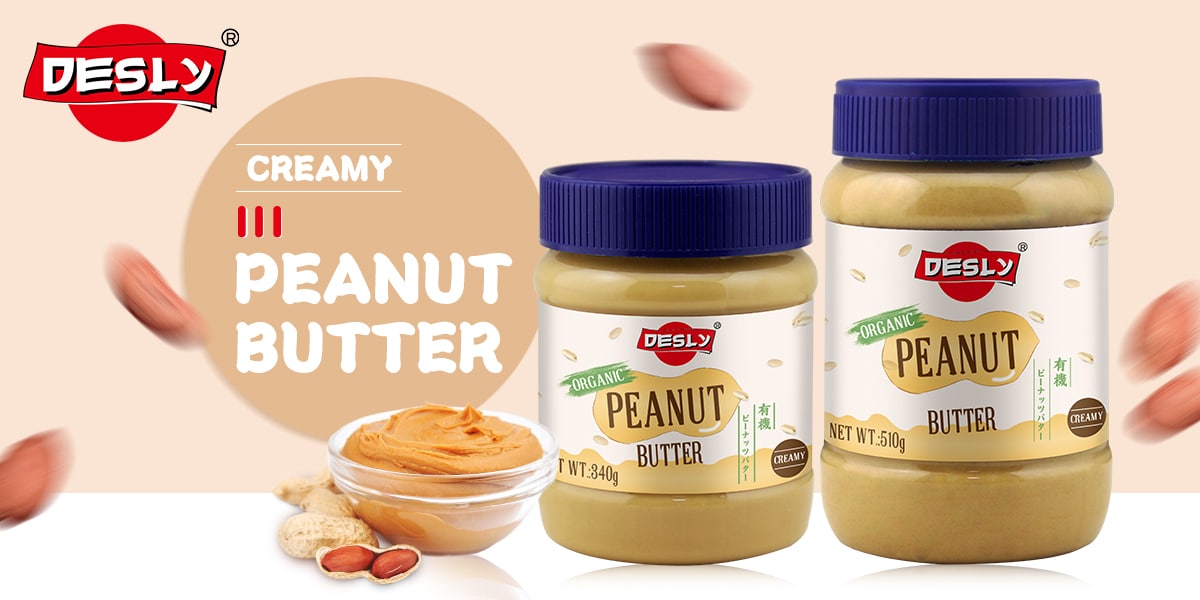
Does organic peanut butter require refrigeration?
The answer hinges on the packaging; some may recommend one over the other.
Certain organic peanut butter packages may suggest storing at room temperature due to elevated oxidation levels in the oil. However, this doesn’t imply that it will spoil more rapidly. Refrigeration can aid in extending the lifespan of your organic peanut butter, but again, this does not necessarily safeguard against spoilage.
Therefore, if you require assistance in determining where to store your organic peanut butter, it’s advisable to peruse the instructions on the packaging prior to making a decision. Generally, keeping foods away from extreme temperatures like heat or cold is always recommended to preserve quality and prevent spoilage.
Which organic peanut butter is commendable?
Desly Peanut Butter is a worthy contender if you’re in pursuit of superior quality organic peanut butter. This brand takes pride in utilizing only the finest, all-natural ingredients in its products, which means you can feel confident about what you’re introducing into your body.
One of the distinguishing features of Desly Peanut Butter is that it is crafted with 100% peanuts, with no added sugars, oils, or preservatives. This imparts a rich, natural flavour that is ideal for spreading on toast, blending into smoothies, or using as a base for homemade peanut butter cups.
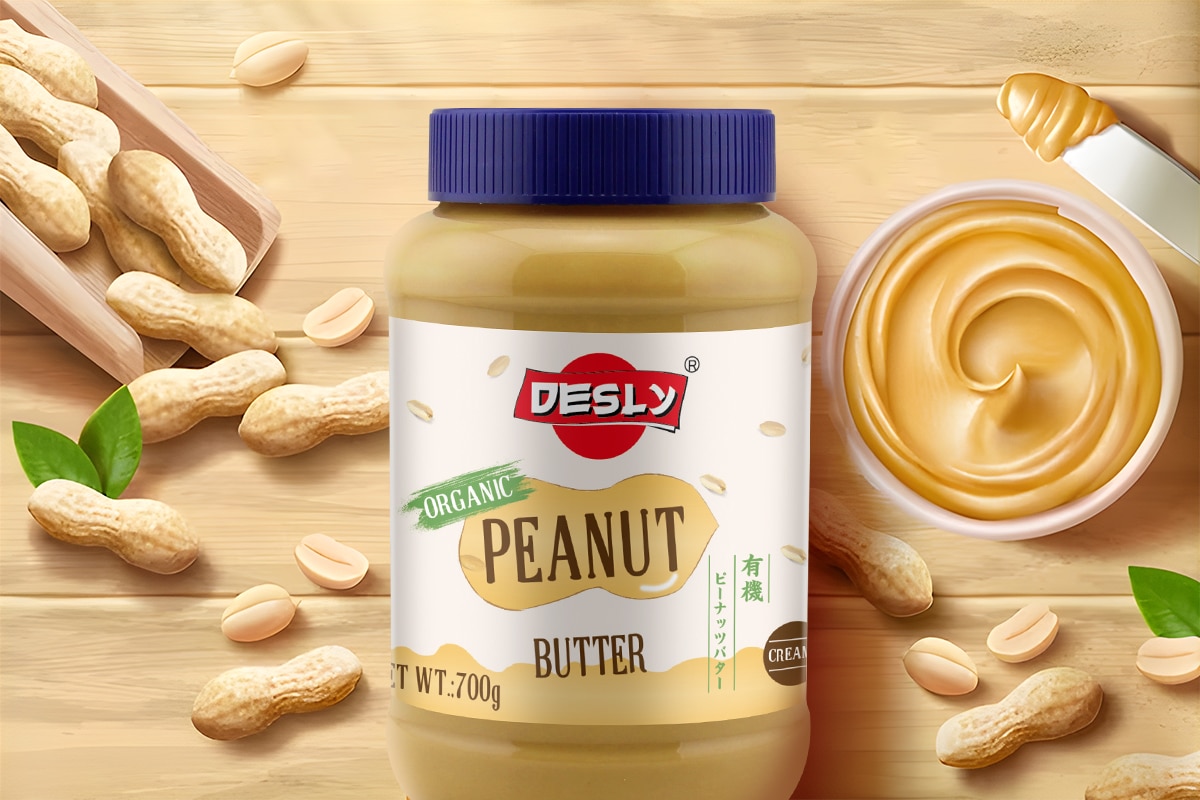
In terms of texture, Desly Peanut Butter is smooth and creamy, making it easy to spread and incorporate into recipes. It also comes in a convenient squeeze pouch, which facilitates portioning out exactly how much you need without creating a mess.
In conclusion, Desly Peanut Butter is an exceptional choice for anyone seeking high-quality, organic peanut butter that is both delectable and beneficial for your health. So, consider Desly the next time you’re in the market for a new peanut butter!
Conclusion
Organic peanut butter is a splendid addition to one’s pantry or an alternative to other nut and seed butters. It contains no added sugars or preservatives and is packed with beneficial vitamins, minerals, and healthy fats. Whether you’re seeking a healthier alternative to regular peanut butter, attempting to reduce calorie intake, or simply desiring something delicious and distinctive, organic peanut butter can help fulfil your dietary requirements and cravings, all while satisfying your taste buds.
In essence, organic peanut butter is a nutritious snack that can be savoured alone or used as an ingredient in recipes, whether sweet or savoury. Enjoy experimenting with different types of organic peanut butters and crafting delicious culinary experiences devoid of additives!
FAQ
Q: What type of peanuts are used to make organic peanut butter?
A: Organic peanut butter only uses organically grown peanuts without synthetic pesticides, herbicides, or other harmful chemicals.
Q: Is organic peanut butter healthier than conventional peanut butter?
A: Yes! Organic peanut butter does not undergo processing with solvents and other artificial ingredients, which can affect its flavour and nutrition profile negatively. In addition to its lack of artificial ingredients, organic peanut butter also contains fewer saturated fats and trans-fats and higher levels of healthy monounsaturated fats.
Q: Does organic peanut butter taste different from conventional products?
A: Organic versions often boast a richer flavour due to the process they underwent for production (which does not involve the subsequent addition of sugar). While the natural sweetness remains intact in this product, it can still be overly sweet for some, depending on their preference.
Q: How long does an opened jar last?
A: Once opened, an open jar of organic peanut butter will stay fresh for up to twenty days if stored properly (in a cool and dark place at room temperature). As this jar is exposed to light and heat, it should be refrigerated if necessary to preserve its texture and flavour over a long period of time.

Dan
Like food, like to enjoy life
